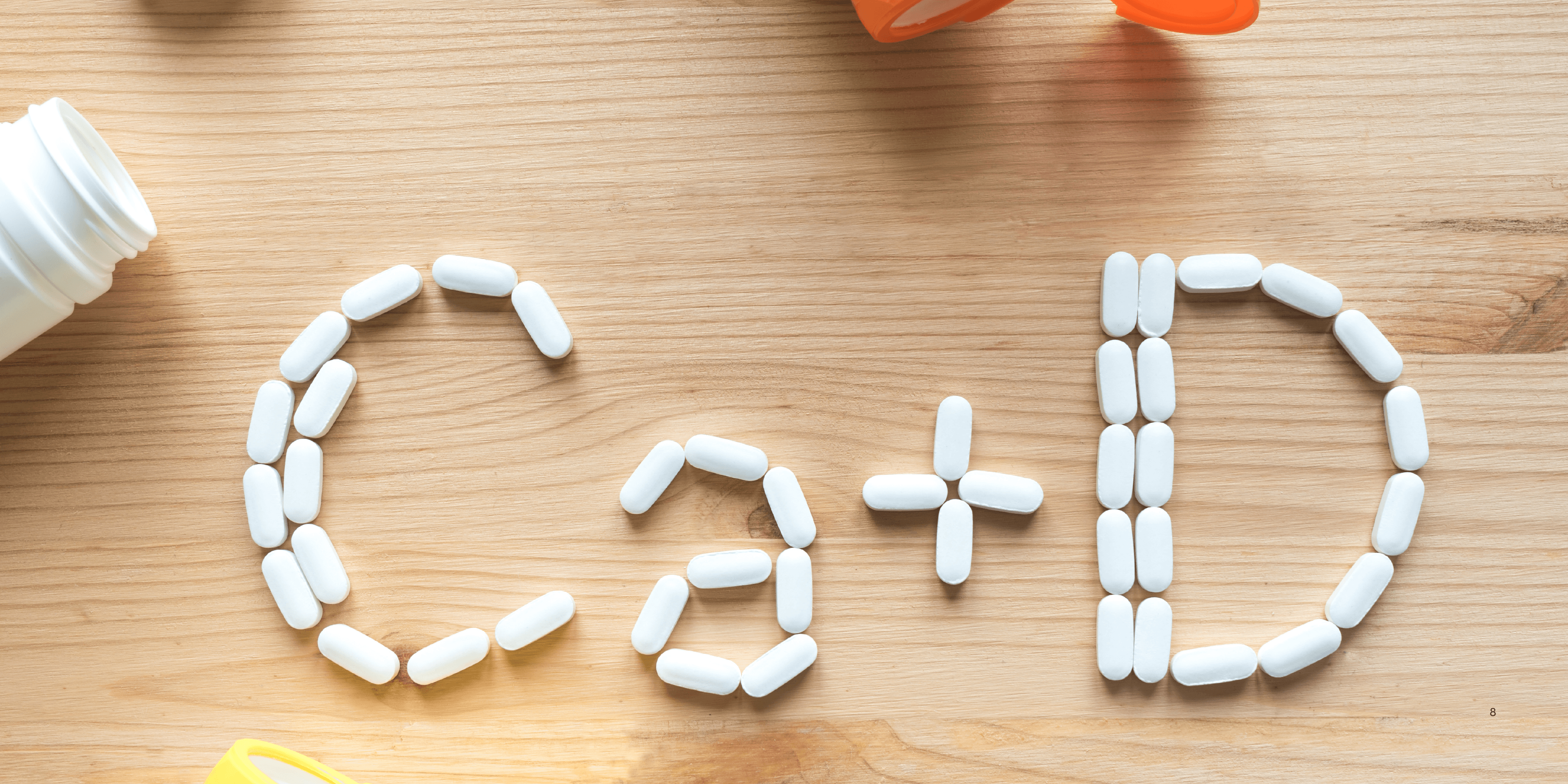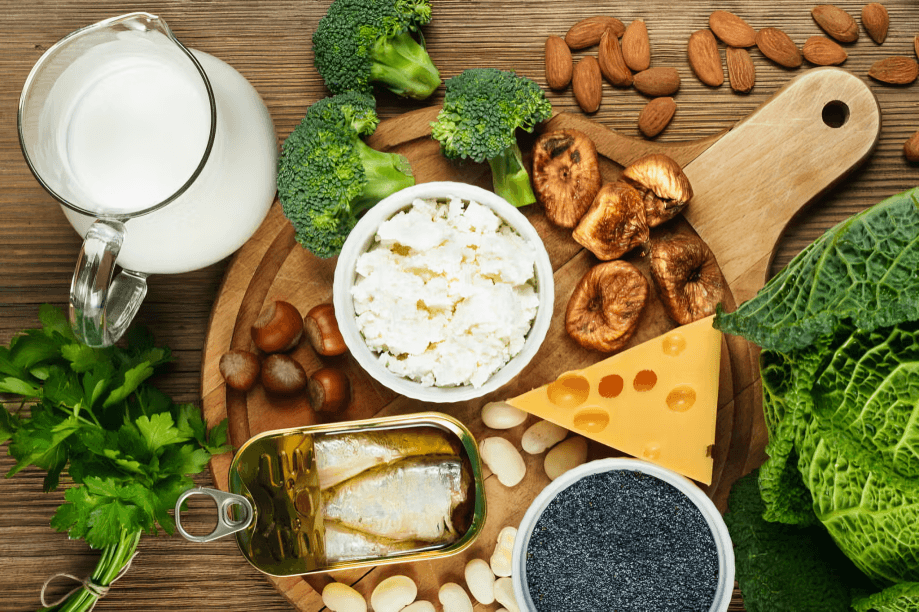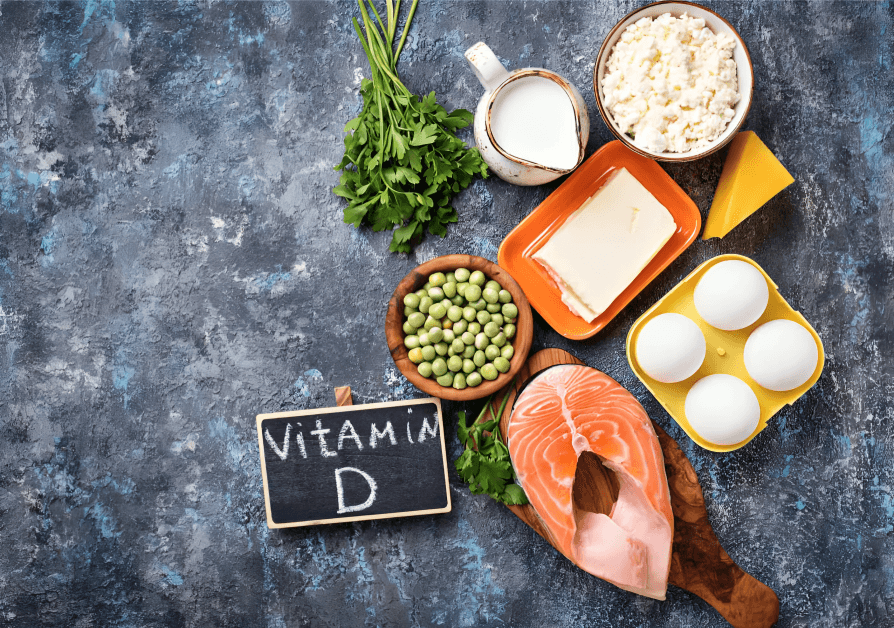
“
The role of vitamin D & calcium in bone health is fundamental, forming the core of skeletal strength and mineral density. Calcium is the primary building block of bones, while vitamin D ensures its efficient absorption and regulation. Without this powerful partnership, bones may become brittle, weak, or deformed, increasing the risk of fractures, especially in older adults. 1
1
”
Calcium serves as the core mineral in bones and teeth. It forms rigid structures and is constantly renewed through dietary intake, supporting overall skeletal strength, balance, and physical posture. 1
Vitamin D acts as a biological assistant to calcium. It promotes intestinal absorption of calcium, ensuring that the mineral is properly used by the body rather than excreted unused. 2

Without sufficient vitamin D, even high calcium intake may not support bone health, as the calcium fails to absorb into the bloodstream and reach the areas it's most needed.
Adults deficient in vitamin D and calcium often experience osteomalacia, a condition where bones lose density and become painful, soft, and more vulnerable to fractures. 3
Bone is a living tissue. It continuously breaks down and rebuilds. Calcium provides the materials, while vitamin D ensures that these materials are delivered and absorbed efficiently. 4
Postmenopausal women are especially prone to bone loss due to hormonal changes. Sufficient intake of calcium and vitamin D reduces the risk of osteoporosis and bone fractures. 5
Vitamin D regulates calcium levels in the blood by interacting with the kidneys, bones, and digestive system, creating a finely tuned balance that maintains bone density and stability. 6
The body produces vitamin D naturally when exposed to sunlight. Just 15–30 minutes of daily sunlight can significantly boost vitamin D production and contribute to better bone health. 7
Dairy products like milk and yogurt are excellent calcium sources. When fortified with vitamin D, they provide a double benefit in promoting stronger bones and preventing mineral deficiencies. 8

The National Osteoporosis Foundation recommends daily intake of 1,000 to 1,200 mg of calcium and 600 to 800 IU of vitamin D for optimal bone protection and health.
Bones store about 99% of the body’s calcium. If blood calcium drops, the body draws it from bones—making constant intake essential to avoid gradual bone weakening over time. 9
Aging decreases the skin’s ability to produce vitamin D and the gut’s capacity to absorb calcium, requiring older adults to be more conscious of their dietary and supplement choices. 10
Certain medical conditions, such as Crohn’s disease or celiac disease, reduce vitamin D and calcium absorption, increasing the risk of chronic bone disorders without early diagnosis or dietary intervention. 11
Bone remodeling slows with age. Without proper calcium and vitamin D, bone breakdown can exceed bone building, leading to gradual and silent erosion of skeletal mass and strength. 12
Magnesium and phosphorus also play roles in bone health, but without vitamin D, calcium’s benefits remain limited, making this vitamin essential for bone mineralization and strength. 13
In pregnancy, both mother and baby require calcium and vitamin D. The baby uses these nutrients for skeletal development, while the mother must replenish to protect her own bone density. 14

Fortified cereals, fatty fish like salmon, and egg yolks offer vitamin D, while almonds, leafy greens, and sesame seeds provide calcium—expanding beyond dairy as key bone-friendly food options.
Prolonged vitamin D and calcium deficiency may not show immediate symptoms but silently contributes to porous bones, increasing fracture risk from simple falls or even minor stress. 15
Studies show that athletes with optimal vitamin D levels have stronger bones and fewer fractures. Proper calcium intake further enhances physical performance and recovery from skeletal stress. 16
Doctor Anthony Norman, a leading vitamin D researcher, emphasized its hormone-like function in calcium metabolism. His work shaped our current understanding of how this vitamin preserves lifelong bone health. 17


